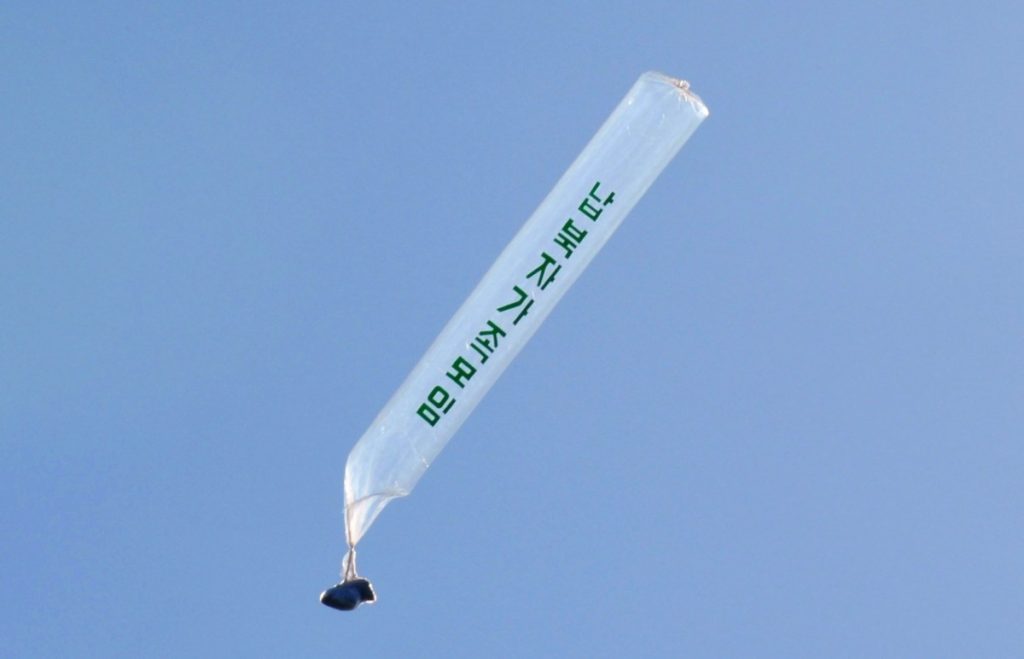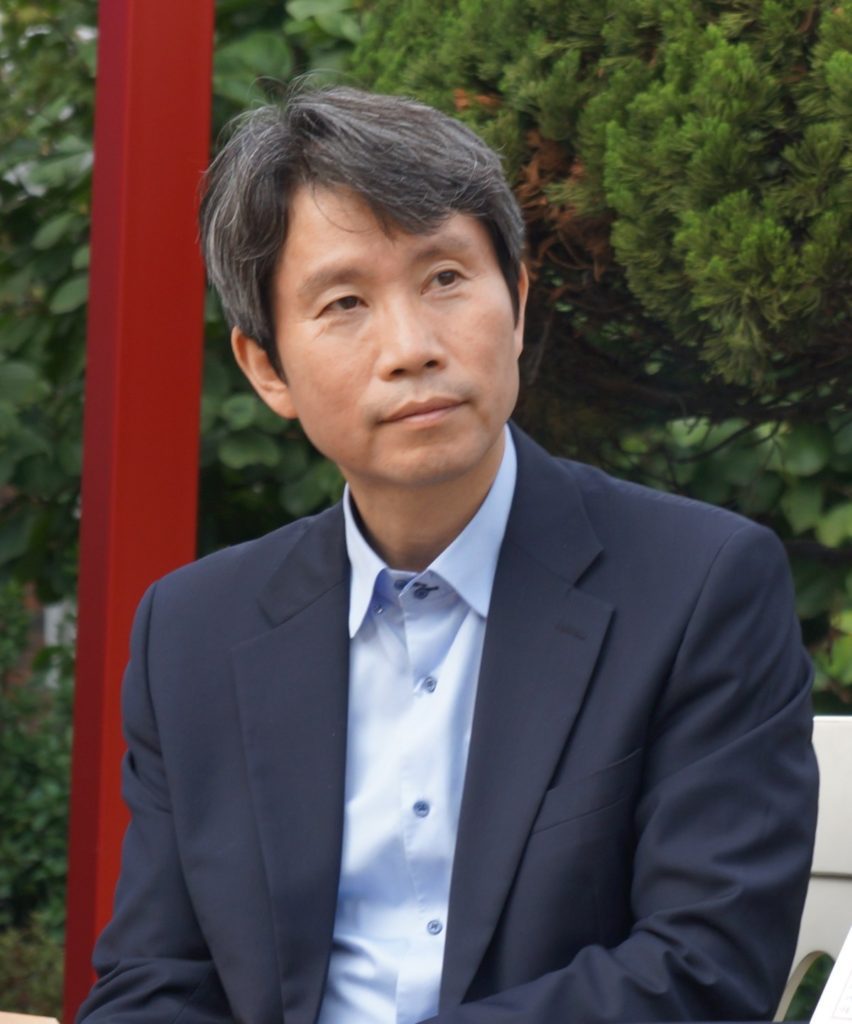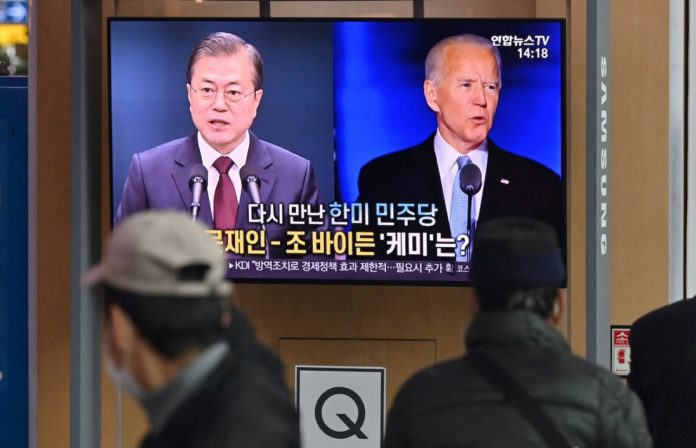Anti-balloon law infringing South Korean human rights is another hint his government’s direction is divergent
In 2005, while serving as the US Marine Corps attaché in Tokyo, I spoke at a UN-sponsored symposium on stopping North Korea’s nascent nuclear weapons program.
The speakers put forth different combinations of carrots (oil, food, money) and sticks plus assurances that didn’t fall into either of those categories – packages that they thought might prompt Kim Jong Il (the current Kim’s father) to give up his quest for nuclear weapons.
Accomplish this, and all would be right with North Korea.
When my turn came, I noted that nobody had mentioned the humanitarian catastrophe and widespread torture that North Korean citizens were suffering. This alone, I argued, was reason enough to isolate and force change in the country.
At the break, two men introduced themselves as being from the US Department of Defense. One of them said: “We wish we could say that.”
My answer: “You mean we can’t?” I thought that’s what Americans were supposed to do.
Give a similar speech in Seoul these days and it might be the cops showing up in the foyer and telling me, “you’ll keep quiet if you know what’s good for you.” And if I were a South Korean citizen – even an escapee from the North Korean gulag – and decided to write the message down and send it to North Korea, there could be criminal charges and a spell in prison.
President Moon Jae-in’s South Korean government recently rammed a bill through the National Assembly that further criminalizes South Koreans doing things the North Korean dictator Kim Jong-un and his sister don’t like.
In this case, the law prohibits something South Koreans have been doing for years: launching toward North Korea balloons containing leaflets criticizing the Kim regime and its assault on human rights.
Some messages also describe the reality of life in South Korea (the opposite of what Pyongyang tells its citizens), and the balloons may also carry Bibles, rice, US dollars and USB sticks containing world news.

The nominal excuse for the ban? The balloons might land on South Koreans in the border area. And also it is littering if they touch down in the wrong place. One hears these sorts of excuses from Japanese bureaucrats trying to cancel missile defense systems.
The Moon administration and previous leftist South Korean governments over nearly 20 years have tried to placate and buy off North Korea. Pyongyang’s behavior hasn’t improved, but the country does now have improved nuclear weapons capabilities and the means to deliver them.
Naive or worse?
This could just be Jimmy Carter-style naiveté, but maybe there’s something more going on.
Americans often assume that South Korean governments, regardless of political leanings, share Washington’s basic objectives – specifically, to maintain a solid US-Republic of Korea defense against North Korean aggression; to “denuclearize” the North; and to keep democratic South Korea as part of the US alliance network in Asia, with the People’s Republic of China on the outside.
But maybe Moon Jae-in and his colleagues aim for something different? Such as unifying South and North Korea – and removing the Americans from the peninsula. More than a few South Korean leftists see the Americans as imperialists whose presence is the reason for a divided peninsula.
And instead of eliminating North Korea’s nuclear weapons, incorporate them into a unified Korea’s arsenal – and re-orient defense eastward, against Japan. In the process, establish a close relationship with the PRC.
With nuclear weapons, a powerful conventional force, and a strong economy (currently the world’s 10th largest), Korea can hold its own – or so the theory goes.
Unthinkable? Maybe not. Consider President Moon’s and his closest associates’ backgrounds and listen to what they say. Moon once described his delight on hearing the Americans had finally lost in Vietnam. And for some of Moon’s people, the description “far-leftist” isn’t quite enough.

Take Lee In-young, the Unification Minister appointed in July 2020. Read the transcript of his confirmation hearing in the National Assembly.
Lee is biting his tongue but doesn’t seem to have changed much since his days as the#2 person in the Anti-American Youth Association, which was the underground organization providing leadership to Jeondaehyup, the violent, radical 1980s student organization based upon North Korea’s Juche ideology.
Tara O of East Asia Research continues to do excellent work on this topic for anyone interested in understanding the backgrounds, ideologies and political objectives of Moon Jae-in and South Korea’s leftists.
South Korean opponents of the new bill have spoken up – as have some Americans. Congressmen Christopher Smith, a New Jersey Republican, and Gerald Connolly, a Democrat from Virginia, have criticized the balloon law and other moves that they describe as efforts by the Moon administration to restrict political opponents’ free speech.
But their colleague Texas Republican Michael McCaul got to the heart of the matter: “Freedom of expression is a core democratic value. A bright future for the Korean Peninsula rests on North Korea becoming more like South Korea – not the other way around.”
‘You don’t understand’
The South Korean government has been spending like a drunken sailor in recent years to buy influence in Washington. Moon administration officials and supporters using that access have been on the warpath in Washington, arguing that critics of the new law don’t understand the situation and that some human rights aren’t really what people think they are.
Moon Jae-in is a so-called human rights lawyer. Perhaps he can read the UN report on human rights in North Korea, and then read the Universal Declaration of Human Rights and the International Covenant on Civil and Political Rights – both of which South Korea is bound by, legally and morally.
And then try to explain away his administration’s blind-eye to North Korean human rights brutality – to include recently refusing to co-sponsor a United Nations resolution on the human rights situation in North Korea.
Perhaps the suffering North Koreans are just collateral damage as Moon aims for a utopian future on the peninsula. And maybe that also explains his administration’s intimidation of South Koreans trying to aid fellow Koreans in the North.
The good news? Despite the balloon law’s passage (with only Moon’s party assembly members voting for it), most South Koreans don’t seem to want everything Moon and his coterie of ideologues want for South Korea.
Opinion polls indicate more than 90% support for the US-ROK military alliance. And 54% favored American forces remaining even after a hypothetical unification.
With this in mind, Washington ought to insist Moon clarify his long-term intentions for the alliance.
South Korea and the United States are natural friends. But as with any relationship the US-South Korea alliance requires nurturing and give-and-take – and even forbearance, verbal and otherwise (to include not squeezing money out of an ally).
But if the Moon government thinks North Korean gulags and brutality aren’t a big deal – and that paring down South Korean citizens’ rights isn’t that big a deal, either – one hopes the US government will say otherwise, and say it publicly and for as long as necessary.
That’s what Americans are supposed to do.
Grant Newsham is a retired U.S. Marine officer and a former U.S. diplomat and business executive who lived and worked for many years in the Asia/Pacific region. He served as a reserve head of intelligence for Marine Forces Pacific, and was the U.S. Marine attaché, U.S. Embassy Tokyo on two occasions. He currently serves KCPAC as president.


